Sustainability Advisory Council Second Phase
Roles
The second phase of the Sustainability Advisory Council began in April 2023.
The council evaluates the efforts of Ajinomoto Group executive management from the perspectives of the capital markets and well-being. Council evaluations note the following three points in particular, and the council submits reports and opinions of its evaluation to the Board of Directors.
Matters Addressed by the Sustainability Advisory Council
- Implementation of initiatives, KPIs, and plans based on materiality (Implementation)
- Disclosure of information and stakeholder dialogue related to the progress of implementation efforts and measures to scale ASV (Communication)
- Relationships with stakeholders to scale ASV (Partnership)
Sustainability Advisory Council Member Profiles
Note: As of April 2025
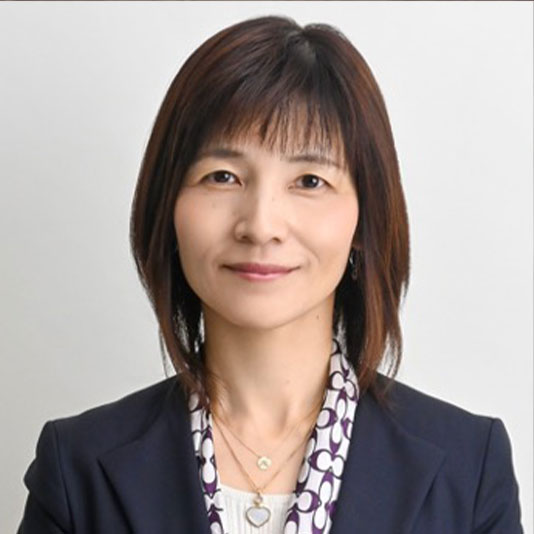
Mana Nakazora, Chair
Vice Chairperson, Global Markets,
BNP Paribas Securities (Japan) Limited
After working for Nomura Research Institute, Morgan Stanley, and JP Morgan, Nakazora joined BNP Paribas as the Head of Credit Research Department in 2008. She assumed her current duties in February 2020. Ms. Nakazora also serves as chief credit strategist and chief ESG strategist. Other notable positions have included serving as private-sector member of Japan’s Economic and Fiscal Policy Council and drafting committee member of the Financial System Council.
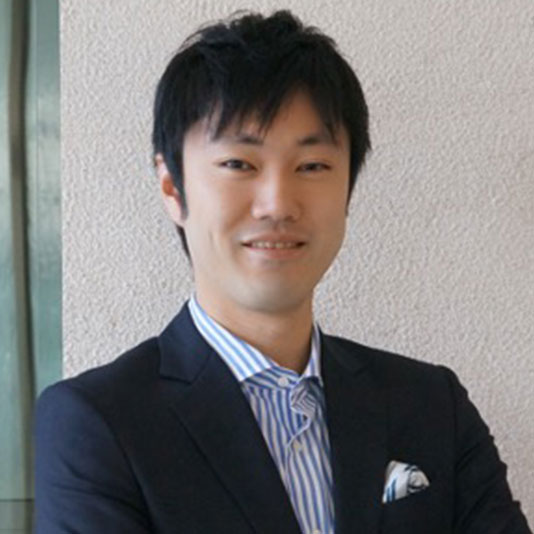
Yoshiki Ishikawa
Representative Director,
Well-being for Planet Earth Foundation
Public health researcher and Ph.D. in medicine. As a public health researcher, entrepreneur, and science journalist, Ishikawa is working at the intersection of science, business, and government as a catalyst with the aim of advancing the well-being of society. Mr. Ishikawa's publications include Full Life: Time Strategies Connecting Today's Work With 10-Year Goals and 100-Year Lifespans and other titles.
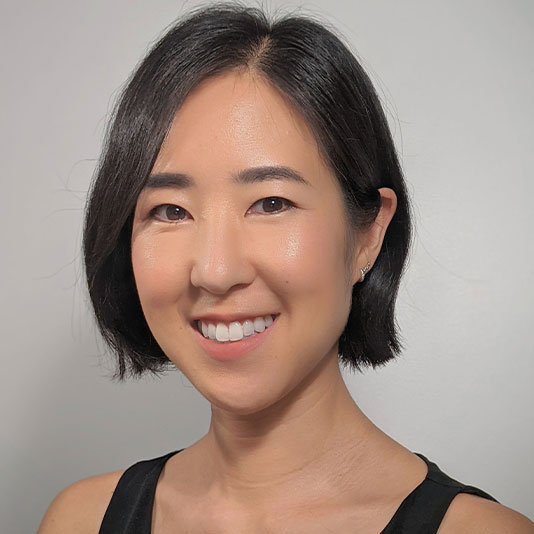
Naoko Kimura
Membership Director,
Global Impact Investing Network(GIIN)
Kimura worked for UNESCO Bangkok, Morgan Stanley Japan, and the United Nations Global Compact in New York prior to joining the GIIN in May 2018. She became the Senior Manager, Member Engagement at GIIN in 2021 and has been in her current position since June 2022. The GIIN seeks to accelerate the development of the impact investing industry by convening impact investors to facilitate knowledge exchange, conducting research, and producing tools and resources.
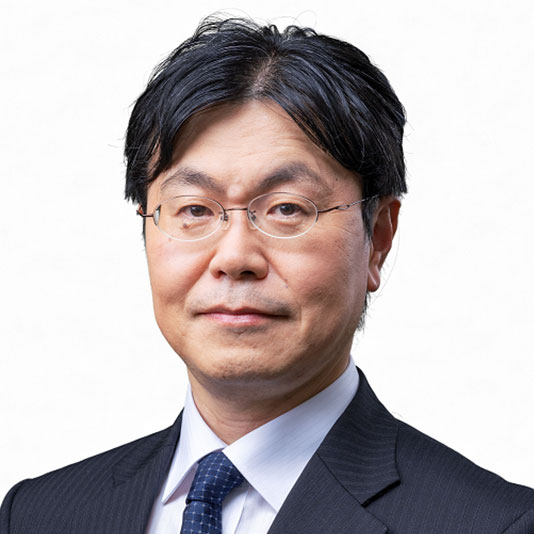
Minoru Matsubara
Chief Sustainability Officer and Managing Executive Officer,
Responsible Investment,
Resona Asset Management
Mr. Matsubara joined Resona Bank in 1991 and has been engaged consistently in investment management since. In April 2020, he was appointed executive officer and general manager over the Resona Asset Management responsible investment department, and has served in his current position since August 2023. Mr. Matsubara is also a member of the Sustainability Expert Committee of the Japan Association for the 2025 World Exposition. He has also served in numerous committee positions, including the SX Brand Evaluation Committee of the Ministry of Economy, Trade and Industry. His major publications include co-authorship of Practical Human Capital Management, Reform: Corporations and Financial Capital Markets in the Era of New Capitalism, and others.
Implementation Framework

The key points contained in the reports of each Sustainability Advisory Council member area as indicated in the implementation framework above.
Sustainability Advisory Council Agenda
The following describes the process of discussions conducted prior to submitting the final report.
Through various inputs, the Sustainability Advisory Council members gained a deeper understanding of the Ajinomoto capability for achieving Ajinomoto Shared Value (ASV) management, or management by which the Ajinomoto Group creates economic and social value. The council then drafted a logic model for economic and social value creation under which the company can reach for greater heights and draw closer to an ideal world vision. The council submitted a report of advisory matters, including matters that reflected a backcasting approach.
| Date | Agenda (Excerpt) | Discussion Results |
|---|---|---|
| Preparation for the first meeting | Sustainability Advisory Council members received information on materiality, related initiatives, and KPIs in advance of the first meeting. | The company provided explanations of the Ajinomoto Co., Inc. approach and framework related to materiality, specific risks and opportunities, initiatives, and KPIs. |
| First Meeting September 20, 2023 |
Conducted a gap analysis between the company's vision and current state of affairs (Ajinomoto Co., Inc. initiatives and KPIs) in light of capital market expectations, best practices from other companies, and so forth, confirming direction toward improvement. | Encouraged an understanding of Ajinomoto Co., Inc. materiality, related initiatives, and KPIs through questions and discussion. The council discussed recommendations for further improvement, referring to examples of disclosures from other companies. |
| Preparation for the second meeting | Encouraged an understanding of the Ajinomoto Group among Sustainability Advisory Council members through dialogue with the Ajinomoto Co., Inc. CEO and internal directors. | Conducted an interactive session between the Sustainability Advisory Council members, the Ajinomoto Co., Inc. CEO, and three internal directors. Council members confirmed their awareness of Ajinomoto's strengths, weaknesses, core competencies, and challenges. |
| Second meeting January 10, 2024 |
How to link the Ajinomoto Group core "AminoScience" to the creation of social value. | Organized Ajinomoto Co., Inc. capabilities, economic value, and social impact from the perspective of the council to ensure a rapid understanding. →(Reference) Click here for a diagram of the social value created through "AminoScience." |
| Preparation for the third meeting | Additional input on Ajinomoto Group activities provided to the Sustainability Advisory Council members. |
|
| Third meeting October 30, 2024 |
Discussed the vision of an ideal society and the process (logic model) to achieve said vision. | Aiming for even greater heights, the council examined a vision of an ideal world beyond what can be achieved by a single company and confirmed the logic model for moving toward said vision. →(Reference) Final version of the logic model |
| Preparations for the fourth meeting | Confirmed the content of the fourth and final report. | Discussed issues and specifics of the report in preparation for creating a final version. |
| Fourth meeting January 30, 2025 |
Reported on three advisory matters based on the logic model developed. Evaluation of the Current State of Implementation, Communication, and Partnership; Suggestions for the Future |
The council offered recommendations for building partnerships and exercising leadership conscious of systemic change to build deeper engagement with future generations and to look ahead to the post-2030 era. |
Report to Each Advisory Body (Evaluation of Implementation Efforts)
The fourth Sustainability Advisory Council meeting discussed the current state of Implementation, Communication, and Partnership. The following describes the results of the council's evaluation.
| Implementation | Communication | Partnership | |
|---|---|---|---|
| Evaluation of Execution Efforts | ○~△ | △ | △~× |
| Basis of Evaluation |
|
|
|
Report to Each Advisory Body (Regarding the Future)
The following summarizes the council's report on areas in which Ajinomoto Co., Inc. should improve.
Through Implementation, Communication, and Partnership built on the assumption of creating economic value, Ajinomoto should be able to create social value, propose value propositions, and co-create value. When multiplied together, these factors will speed and scale value creation further to enhance corporate value.

| Matters Addressed | Implementation | Communication | Partnership | |
|---|---|---|---|---|
| Value Created | Social Value | Value Proposition | Co-Created Value | |
| Areas to Strengthen | Response to evolving corporate value |
|
|
|
| Deeper engagement with future generations | - |
|
|
|
| Progress toward an ideal world |
|
- |
|
Comments From the Chairperson of the Board of Directors Regarding the Content of the Council's Report
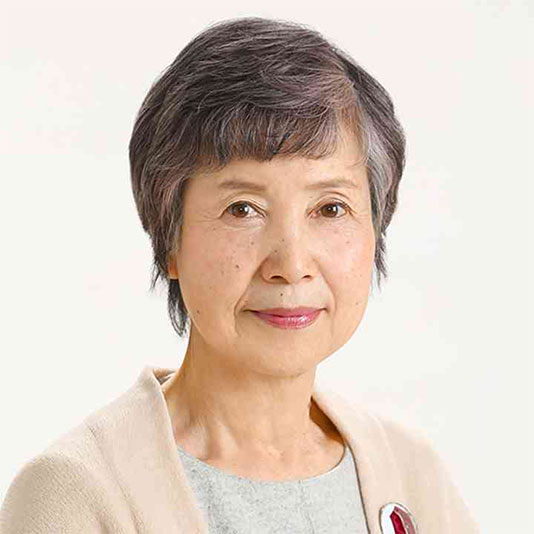
Kimie Iwata
Ajinomoto Co., Inc.
Independent Director
Chairperson of the Board of Directors
The Sustainability Advisory Council prepared this final report from a very long-term perspective, and we understand the high expectations the council has for our company. In particular, we received a good evaluation for Implementation, but we received a minus for Communication and a minus to x for Partnership. We are painfully aware of our inadequacies in these areas. We received specific recommendations, which we will take to heart and discuss within the Board of Directors. In the future, we hope to tie these recommendations to a monitoring scheme for initiatives. We understand the council's opinion that the Ajinomoto Purpose toward 2050 should not be an ultimate goal, but a waypoint toward creating an ideal world. The thought-provoking suggestions we received provide insight into the larger direction of our business.
Last, I want to express my sincere gratitude to the Sustainability Advisory Council members for their valuable comments and suggestions, as well as their work over the past two years. With the council's cooperation and support, we intend to work even harder and aim for even greater heights.
Sustainability Advisory Council Member Comments on the Content of the Final Report
Mana Nakazora, Chair
We faced a difficult task in finding ways to delve deeper into the Ajinomoto Co., Inc. value creation framework built on "AminoScience" and in building on the work developed by the first phase of the Sustainability Advisory Council. We seek ways in which Ajinomoto Co., Inc. can evolve in consideration of all manner of investors, consumers, society, the environment, the Earth, and future generations—all representing enlarged aspects of the Ajinomoto Co., Inc. multi-stakeholder group. We concluded that Ajinomoto Co., Inc., with its overwhelming strength around a core of "AminoScience," should look to uphold supporting lives of dignity. Eating is fundamental to life. We believe being able to choose what to eat, with whom, and when leads to greater dignity of life. One way for Ajinomoto Co., Inc. to maximize corporate value will be to leverage unique technology in support of those choices. The Ajinomoto contribution to society is the company's spirit in supporting lives of dignity. The true value of Ajinomoto Co., Inc. shines through this spirit, building day by day and year by year.
We have high expectations that the Ajinomoto spirit will resonate with people around the world and with future generations.
Yoshiki Ishikawa
The Ajinomoto Group aims to contribute to the well-being of all human beings, society and the earth through “AminoScience.” But several questions remain. What specific steps will Ajinomoto Co., Inc. take over the long term? How much value (financial, social, environmental) will the company continue to create? With what degree of certainty will the company create said value? Of course, so-called concrete plans can and should be disclosed to stakeholders over any relatively short time horizon. On the other hand, this Sustainability Advisory Council deals with the long-term time horizon, and plans and goals must necessarily be more abstract. This approach may be difficult for stakeholders to comprehend fully.
Despite these limitations, the Sustainability Advisory Council vacillated between the concrete and the abstract in rapid succession at times. We finally summarized the results of our work and reported to the Board of Directors. If I were to summarize the essence of the report in my own way, I would say that I hope Ajinomoto Co., Inc. continues to pursue financial value, materiality, philosophical systems, and human dignity (universal values). And I would hope the company does so without compromising any of these elements for a long time to come. This unique approach is what gives Ajinomoto Co., Inc. a long-lasting competitive advantage and will make the company a necessary presence in the world.
I encourage the stakeholders who read this report to offer frank criticisms and suggestions to Ajinomoto Co., Inc..
Naoko Kimura
During the second phase of the Sustainability Advisory Council, we discussed the Ajinomoto Co., Inc. Purpose and impact from various perspectives. Our discussions did not stop with the implementation of materiality as it stands today. We began by looking back 100 years at the origins of Ajinomoto Co., Inc., and then sought to create a picture of what Ajinomoto Co., Inc. might look like 100 years from now. In the process, our discussions went deeper than the Ajinomoto Purpose to a vision of the world as Ajinomoto Co., Inc. fulfills its Purpose. We envisioned a world that enjoyed the benefit of Ajinomoto contributing to the well-being of all human beings, our society and our planet through the company's supporting lives of dignity. Holding a vision means engaging in business from a stance to shape the future, as well as the ability to anticipate and respond to the needs of various stakeholders.
I have high expectations that Ajinomoto Co., Inc. will become an entity of great need by society—an entity that contributes to the well-being of vast numbers of stakeholders in the future.
Minoru Matsubara
In the second phase of the Sustainability Advisory Council, we looked at ASV Report 2024 and were reminded of what the Ajinomoto Group looked like in its early days. We envisioned what the Ajinomoto Group might look like 100 years from now or even beyond. We recognized the importance of Implementation (social value), Communication (value proposition), and Partnership (value co-creation) as we backcast from the overarching idea of supporting lives of dignity. What will companies look like in the future? What role will companies play? What is sustainability? What can we do to foster sustainability? We are confident that we have infused meaning into the three elements discussed above, and we proudly presented a framework for integrating these three elements to Ajinomoto management. This idea may be the self-actualization or transcendence that Maslow began to talk about in his later years.
By placing ourselves in a universality or higher order, we realize true Implementation (social value), Communication (value proposition), and Partnership (value co-creation). As Ajinomoto aims higher, I hope that many people will feel that the Ajinomoto Group is an indispensable entity to society, and that Ajinomoto fulfills its potential to this end.

Final version of the report submitted to the Board of Directors on March 3, 2025
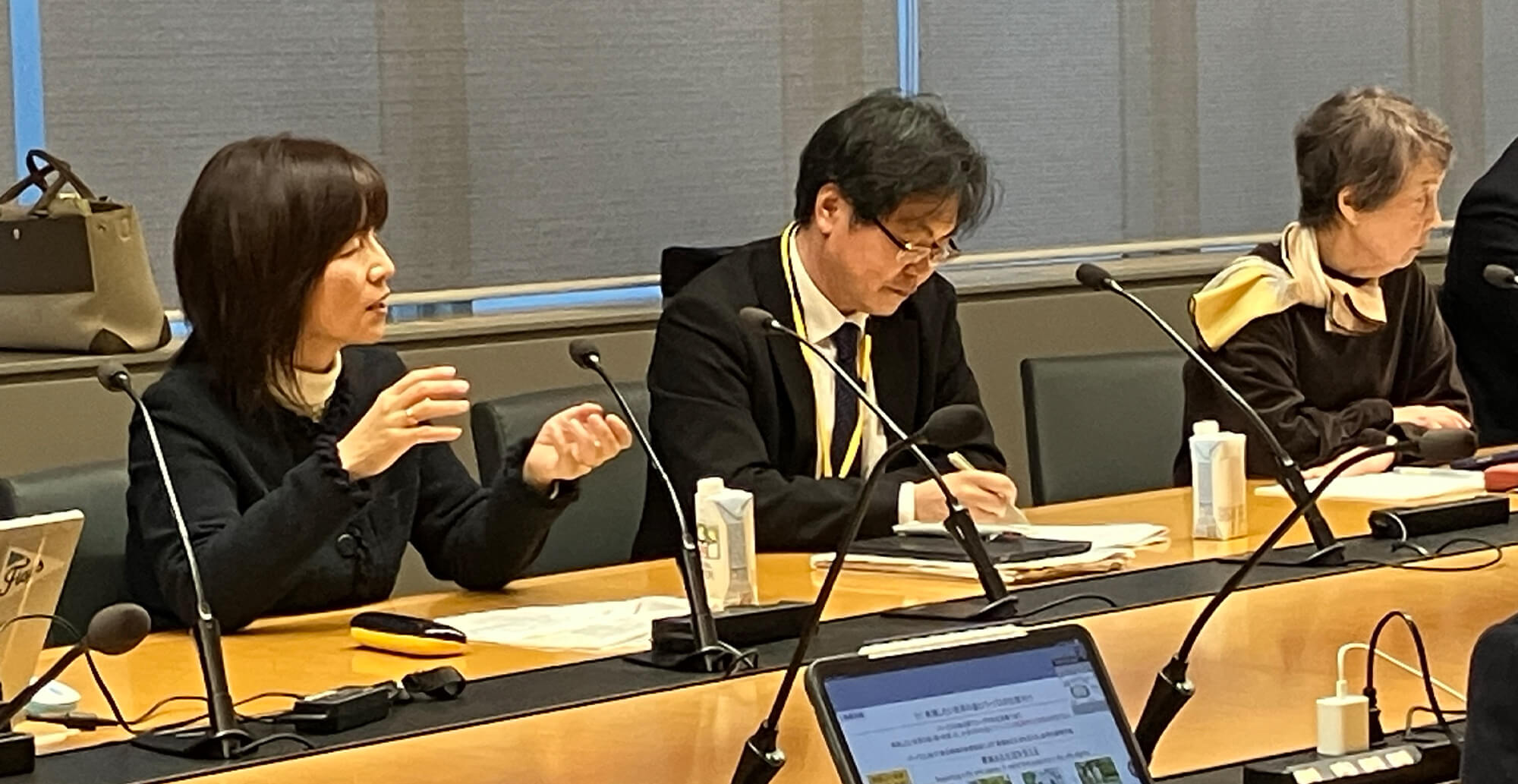
Council chair Ms. Nakazora (left) and member Mr. Matsubara (center)
